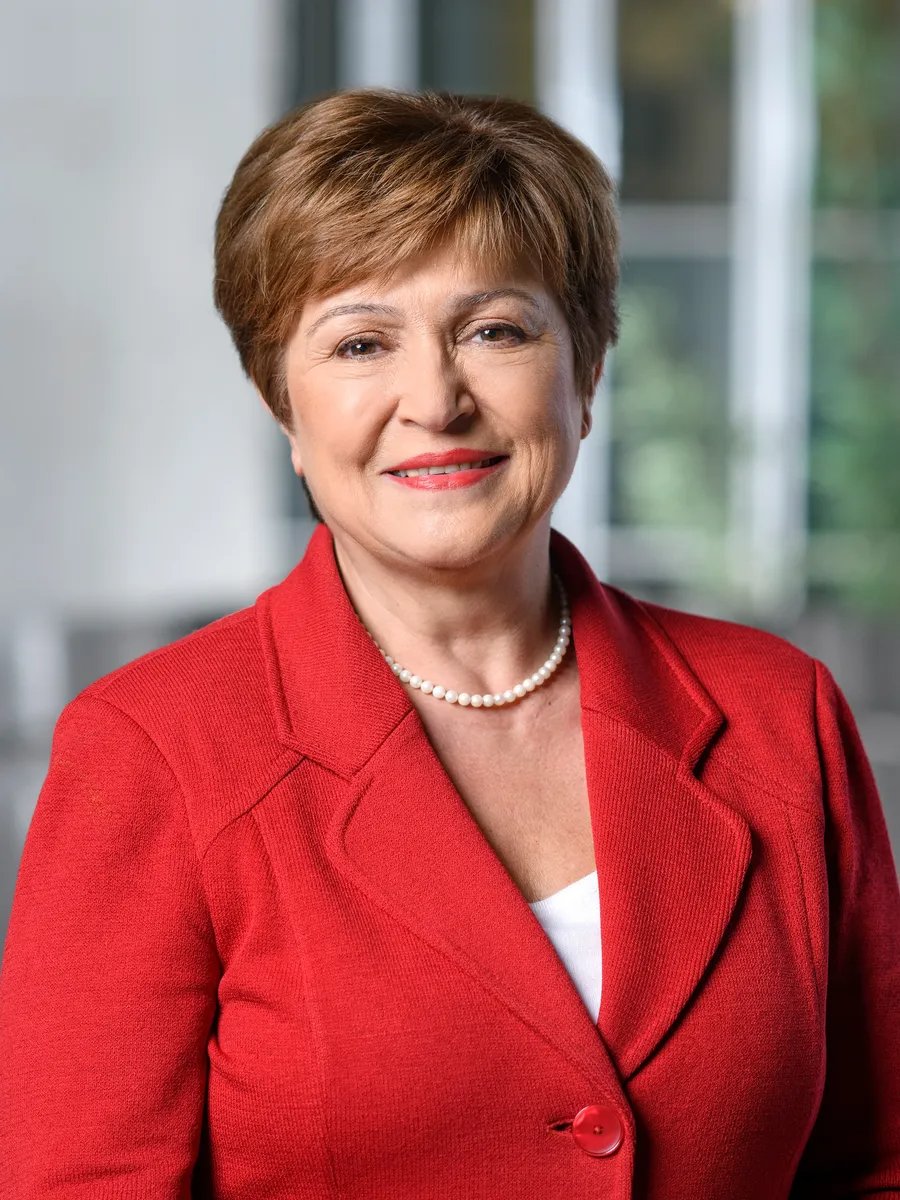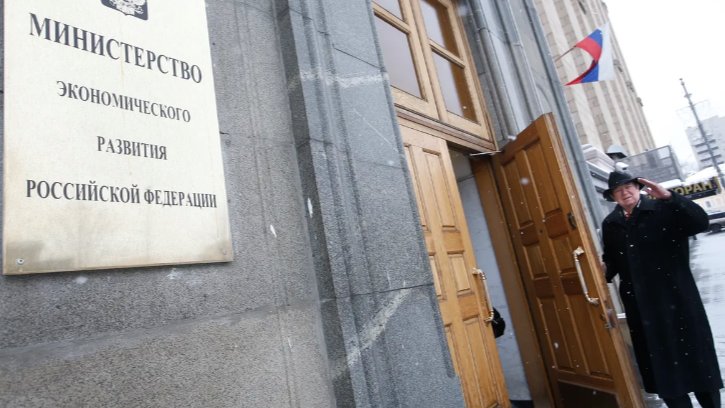
Kristalina Georgieva. Photo: Wikimedia Commons, World Bank Group
Last week, head of the International Monetary Fund (IMF) Kristalina Georgieva said that sanctions will have “quite devastating” effects on the Russian economy which will shrink “by at least 7%”. This statement came out of the blue considering that the IMF in January recalibrated its Russian GDP forecast for 2023: the fund now expects it to grow by 0.3% instead of falling further by 2.3%.
Of course, it is a stretch to call it growth. However, you don’t expect a country that is struggling under the unprecedented sanction pressure and is spending up to 10% of its GDP to fuel its war effort and keep its law enforcement operative to exhibit this statistics. In comparison, Germany’s GDP is expected to go up by only 0.1% in the same outlook.
This “optimism” regarding the stability of Russia’s economy caused an uproar. The general public did not appreciate the IMF’s attempt to act in an unbiased manner, especially considering that other international institutions kept their forecasts the same: a 3-4% drop in GDP in 2023.
The IMF chief was accused of impartiality, parroting Russia’s propaganda slogans, relying on flimsy data provided by the Russian statistics agency (Rosstat), and, indirectly, corruption.
That’s why this time around Georgieva had to send a much clearer signal to the expert community.
The rebukes hurled at the IMF (and even more so Rosstat) are mostly justified. But they also expose the fact that those engaging in arguments about the effectiveness of sanctions often indulge in wishful thinking.
Analysts now can be roughly split into two camps. The first group believes that even if the Russian economy is not “torn to shreds” it is still undergoing a major crisis. The collapse was only averted due to efforts of the technocrats in the Russian government and the sluggishness of the West’s sanction machine. Give it a little more time and the noose will tighten.
The other camp — sceptics — say “sanctions don’t work”. A year later, the Russian economy has not imploded but even continues to prop up the ever-growing war expenses. It seems that Vladimir Putin’s regime is as strong as ever, while sanctions turned out weaker than market middlemen and potential beneficiaries of the restrictions (primarily India and China).
This point of view has grown louder in the last few months and attracted a response.
The sanctions, of course, are working. Russia’s budget deficit in the first two months of 2023 reached 88% of the total deficit planned for the coming year. The new formula of calculating oil and gas taxes and a “shakeout” of the major businesses should improve the situation a little, but even cautious estimates say that the deficit will swell up to 5-6 trillion rubles (€61.75-74 billion) which is a very unfortunate turn of events for the Kremlin that has grown used to having a piggy bank. Unlike 2022, which brought about record-high windfall gains from selling oil and gas, 2023 will be a year of shrinking exports.
Medium-term losses in GDP and, which is not always the same thing, the standard of living for Russians will accumulate. The country is now pursuing “regressive import substitution” — a policy that rolls back production to the level of technologies used 20-30 years ago, while consumers are offered outdated goods for higher prices to substitute for the lost imports. The Russian government heralded this course back in 2014 but it has already brought about losses of tens of thousands of rubles for an average Russian family. However, the authorities earlier were phasing out imports halfheartedly, while this policy is here to stay for the long run now.
But does it mean that the IMF forecasts will definitely not come true, while Georgieva is broadcasting propaganda myths about Russia’s invincibility in the face of sanctions? Not at all.
Firstly, the 0.3% GDP growth can be ushered in through public spending and arms production even while the consumption is deeply in the red. Secondly, even if the economy shrinks by a few percentage points, it will not drive the West closer to what they are after: Russia’s military defeat. This is exactly what those who offer a more cautious view on the destructive nature of the sanctions are saying.
Yes, this is an unprecedented blow dealt primarily to consumption (which we will soon cover in a major study). But the Kremlin’s reserves to keep the war going are still rather large. The Russian economy has not even moved to the mobilisation stage and largely still functions according to the old quasi-market rules.
In other words, Russia will never become a rich and thriving country under these sanctions, but will be able to keep going for a while as an autarky that is slowly growing poorer and poorer and can sometimes harass its neighbours.
It does not mean that sanctions are pointless. They do work and it is very noticeable. But it’s not the IMF’s fault that the Russian economy is still afloat.
It is crucial to understand that the economic leverage on Russia is not omnipotent. It is necessary to choose the most effective measures and avoid a wishful thinking trap by anticipating the impending doom.
Join us in rebuilding Novaya Gazeta Europe
The Russian government has banned independent media. We were forced to leave our country in order to keep doing our job, telling our readers about what is going on Russia, Ukraine and Europe.
We will continue fighting against warfare and dictatorship. We believe that freedom of speech is the most efficient antidote against tyranny. Support us financially to help us fight for peace and freedom.
By clicking the Support button, you agree to the processing of your personal data.
To cancel a regular donation, please write to [email protected]

